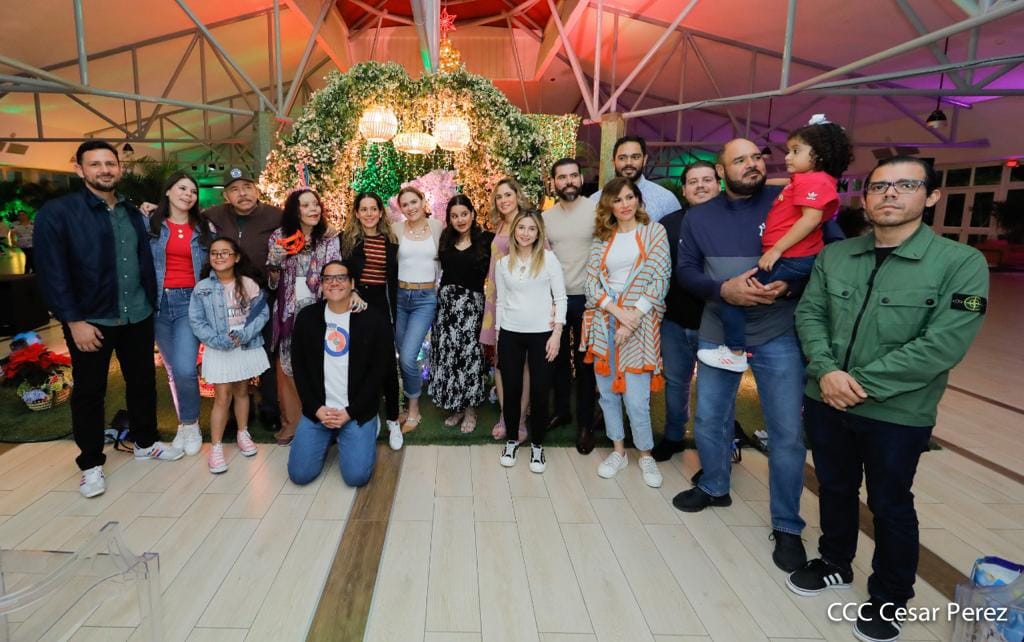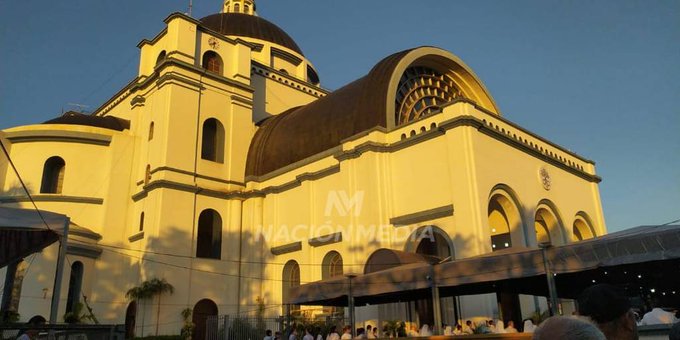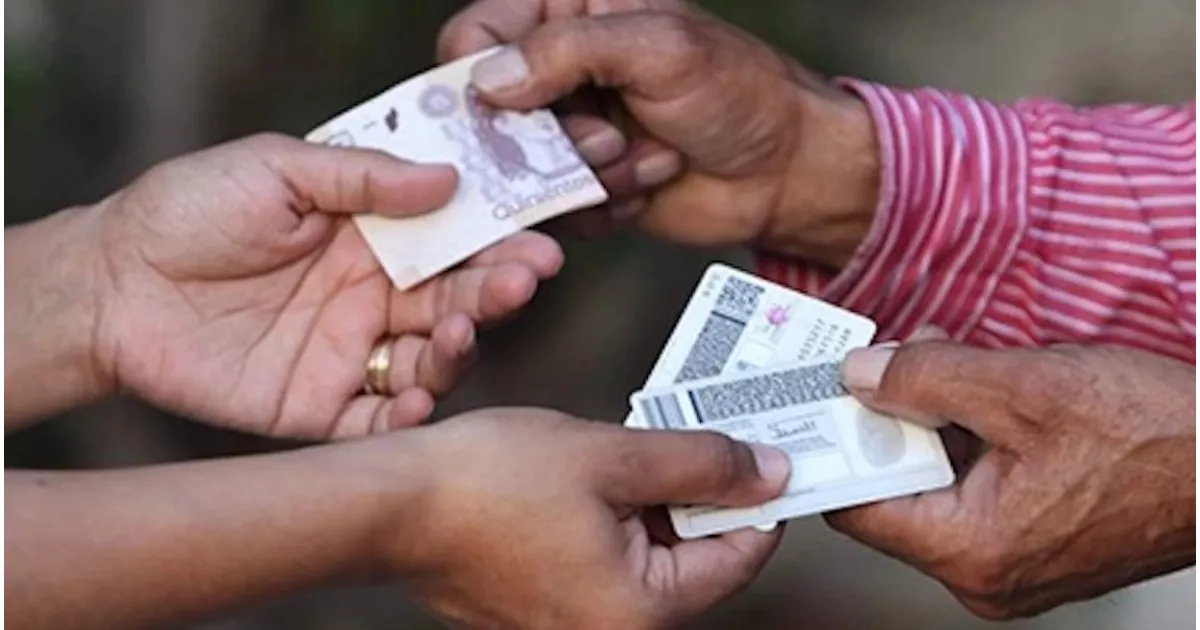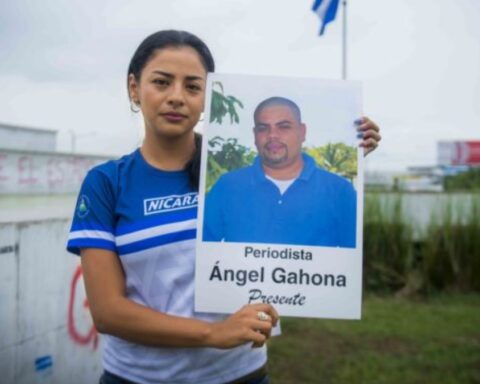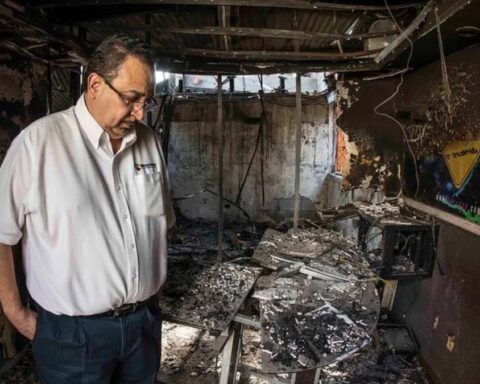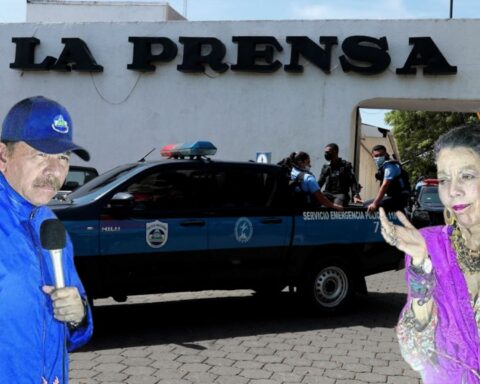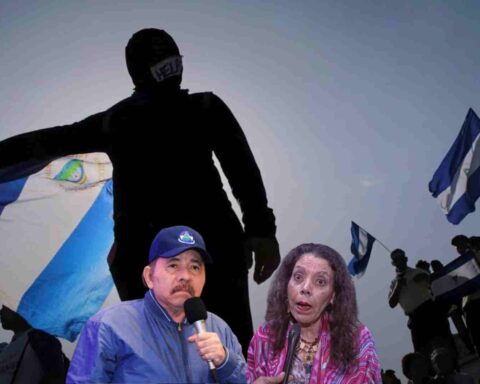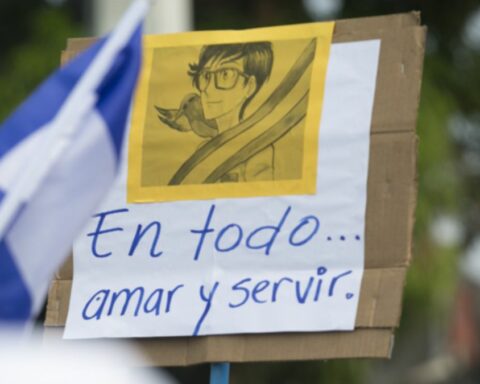With a dozen priests imprisoned, another dozen in exile or exile, and religious and parishioners sheltered or in hiding due to the political persecution of the dictatorship of Daniel Ortega and Rosario Murillo and their political operators and sympathizers, Nicaragua celebrated this 7th of December the traditional “Crying” in honor of the Immaculate Conception of Mary, also called “La Purísima” by her devotees.
From the Central Government and the Police itself – the main repressive arm of the regime that has carried out the arrests of priests – altars and displays of “religious fervor” were promoted. The acts were an attempt to impose the “normality” of the official discourse, despite the resurgence of the de facto police state by which at least 235 Nicaraguans are political prisoners in the prisons of the dictatorship or under the “house for jail” regime. among them the bishop of the Diocese of Matagalpa and apostolic administrator of the Diocese of Estelí, Monsignor Rolando Álvarez.
In Managua, the altars that the Government traditionally places on Avenida Bolívar were erected as in previous years. At noon, the vice president and spokesperson for the regime, Rosario Murillo, began her usual monologue praising the “Holy Mother” and highlighting the work of the Police who, she said, implemented a “Screaming Plan” to “guarantee safety” during the celebration.
However, it was under this argument of the “Plan Gritería” -which in other years was baptized as “Plan María– that the same Police continued to prohibit processions with the Marian image and celebrations of shouting in some streets of Nicaragua, or restricting the use of gunpowder.
Murillo also kept silent about the persecution against the Catholic Church and its parishioners.
Later, around ten o’clock at night, the Ortega propaganda media broadcast images of the private prayer in which Ortega and Murillo participated together with part of their children and grandchildren. The private prayer of the dictatorial paraja is a custom that has been in his residence and office for several years, to which only family members, operators and some international delegates have access.
In the images, from the official media, Murillo was observed with tambourines and handmade accessories, along with Ortega, who was wearing his usual outfit: pants, cap, and jacket.
Their children Rafael, Laureano, Juan Carlos, Maurice, Camila and Mariana Ortega Murillo were also there together with their partners and the grandchildren of Ortega and Murillo, who totaled about 25 minors.
Bishop Báez: “We live in a moment of orphanhood”
Monsignor Silvio Báez, auxiliary bishop of Managua and exiled since 2019 due to death threats against him, assured in a message on the occasion of the festivities of La Purísima that all Nicaraguans “live in a moment of orphanhood as a country.”
“Those who should ensure the well-being of society and take care of our future have become producers of tears, artisans of terror and destroyers of human dignity,” Báez declared in relation to the Ortega regime.
In the San Pedro Apóstol Cathedral, in Matagalpa, the parishioners resented the lack of Bishop Álvarez, who broke tradition for the first time in eleven years, because since August 19 he was transferred by a police contingent to the home of his parents in Managua, where he remains under “house by jail”.
In addition, it was the first time in the almost one hundred years of the Diocese of Matagalpa that the parishioners of that city did not have the cry of their corresponding bishop pronouncing the traditional cry of “Who causes so much joy?”, to which the attendees respond ” The Conception of Mary!” In his absence, the cry was pronounced by the vicar of the Cathedral, Jáder Guido, according to the local magazine Mosaico CSI.
“He was present in the hearts and prayers of the attendees,” said a post on the diocese’s Facebook page.
Meanwhile, on some pages and profiles of Sandinista sympathizers, attacks against the Catholic Church or its members circulated.
On December 2, the United States Department of State included Nicaragua on the list of countries that persecute religious freedom, after registering more than three hundred attacks against the Catholic Church since the social outbreak of April 2018 to date.
Carazo: “It’s useless to decorate altars if you’re chasing”
In several houses in Carazo, altars were erected to celebrate the tradition established 165 years ago and that many devotees preserve, despite the economic and sociopolitical crisis in the country.
In all the churches of the department, altars were prepared for the Catholic people to attend to venerate the Virgin Mary with traditional songs. The local mayors’ offices – under the control of the ruling Sandinista Front – have also organized Marian altars, but the parishioners resent the lack of freedom.
“The altar of the Mayor’s Office is very beautiful. They spent the whole morning carrying toasts (articles to distribute in prayer). I wish they really converted, because it’s useless to decorate altars if you go around persecuting the bishops and those who truly have faith,” said a resident of Caracas.
In the midst of the economic crisis that persists for the fourth consecutive year in Nicaragua, the devotees who prepared their altars also complained about the price of some traditional toasts such as sugar cane, which was quoted at 50 córdobas each rod, or sweet lemon , which was 400 córdobas for 100.
“The people are hungry, so even though food is expensive, I bought rice and sugar to distribute. Also matches, coffee and little things that are useful”, described another devotee. “No candy or chiverías, because people do more with a pound of rice than with sweets,” she added.
This December 8, the mayors of Carazo will also celebrate for the fifth year a “Purísima aquatic” in which some forty boatmen will participate who travel the beaches of Huehuete, Casares and La Boquita. In all the festivities, which began on November 28 with the Novena, the police presence has been notorious, especially in the parishes of the department.
Marian party in Chinandega with little budget
The Marian feast in honor of the Immaculate Conception of Mary also mobilized the West of the country. In the municipality of El Viejo, the festival began on Tuesday, December 6, with the traditional “Lavada de La Plata”. Hundreds of pilgrims gathered in the Minor Basilica and inside the temple or in the atrium and, on their knees or cleaning silver objects, showed their devotion.
Nubia Calero arrived from Ticuantepe, a Managua municipality located more than 150 kilometers away. “We left at one in the morning to reach the feet of the Virgin and ask for my healing. This year I started hemodialysis,” she recounted Calero, who arrived accompanied by her entire family.

In Chinandega, the Marian feast is lived with devotion and also with economic limitations. In the surroundings of the “Dulce Nombre de Jesús” temple in the El Calvario sector, dozens of merchants selling plastic or handicraft items for the traditional “cap” that are distributed in prayers were located as every year.
“Sales started cold, but have improved in the last three days. Everything that is plastic increased in price, up to 10 córdobas per dozen. Despite the increase it has been sold. Two years before, I invested less money, because many people did not open their altars for fear of the pandemic. This year I did take a little more risk, ”said a merchant from León who asked to omit her name.
This year more homes are expected to open their altars, including that of Glenda Zelaya, in Chichigalpa. “In 2020 I did not open my altar, nor in 2021. I was very afraid of contagion from covid-19. This year we made the sacrifice at home and we are going to open at six in the afternoon, but I will wear masks, ”she explained.
In the parks of the different municipalities of Chinandega, the State institutions also prepared a variety of altars, although less luxurious than those exhibited in Managua.
In Rivas they only allowed some processions
In Rivas, in the southeast of the country, the Marian celebration took place in a contradictory environment, since in some municipalities religious activities were allowed, but in others it was prohibited.
In the parishes of San Francisco and San Pedro Apóstol, in the city of Rivas, a calendar of processions was organized through different neighborhoods, which days later was canceled by order of the Police.
The prohibition did not prevent, however, the departure of another procession in the Ulises Colombia neighborhood, near the center of the city, where the devotees accompanied a replica of the image, which is not the official one of their parish and did not end in the temple of San Francisco, where he would normally end up. The procession that the Police did not prohibit had a particularity: it left the house of the relatives of the former Sandinista departmental deputy, Venancia Ibarra Silva.
In the municipality of San Jorge, the processions were carried out normally during all the days of the novena, contrary to the municipalities of Belén and San Juan del Sur, where the corresponding Marian image had to be transferred in a private van to the house of the mayordomo. for the traditional sailing, and return the next day also in a private vehicle.
Residents of Rivera commented, on request not to be identified, that the discretion to authorize or not the processions would depend on the relationship between the priest and the mayor, since the restrictions apply to religious who criticize the administration of the Sandinista Front. Others added that it was also due to urban areas, where the processions were more restricted in this department.

